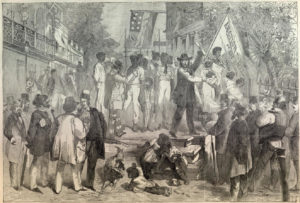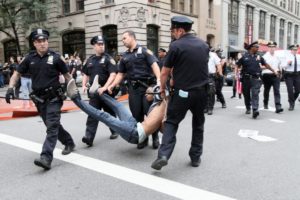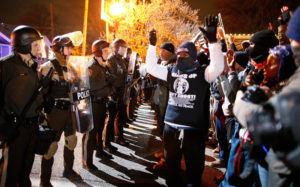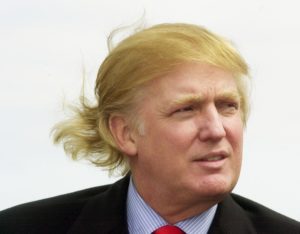The Legacy of American Imperialism
Americans do not think of their nation as imperialistic, even though it is a common epithet in many parts of the world. From the day in 1492 when the first European set foot on American soil, the Americas were part of empires, and later established their own empires. Currently the conflict the United States faces is the legacy of imperialism.
Empires form when foreign territories are conquered. Spain, Portugal, England, France, and Russia all took land from Native Americans. In every case, natives were killed, enslaved, relocated, or died from alien diseases. The situation has not changed 500 years later. Indians remain at the bottom of the social hierarchy. Labor is needed to exploit new land, so slaves were introduced. Cotton and sugar cane are examples. The slaves also occupied the bottom of the order. The same situation applies today. Those people are black or brown, and insulate poor whites from the bottom of the heap.
Race is the problem. If people are Quechua, Mayan, Sioux, Navajo, or African-American, they are born into discrimination. Europeans rule. Political systems reflect the racial divide. In Latin America, the oligarchies in power are of Spanish or Portuguese heritage, with most Indians excluded. In the U.S., the divisions are starting to blur, but Republicans are mostly white and Democrats are more somewhat more diverse.
In the race to include minorities in the Democratic coalition, the white working class tended to be neglected. Their economic status has weakened as many good-paying jobs have moved offshore. Moves to include minorities tend to threaten the status of white working class people’s place in the social hierarchy. Their anti-immigration stance results from the fear immigrants will take the good jobs. In addition, immigrants tend to be brown and vote, a threat to white working class men.
Mr. Trump won the election due to the racial divide. In the rust belt (and swing) states narrow majorities for Trump tipped the Electoral College. There is a paradox in this. The Republication party core constituency is not working-class friendly, but the white tea party folks have joined them. Trump’s cabinet appointments are mainstream Republican or Wall Street, and offer little to the mass of people who voted him into office. We will see how they react to Trump’s policies in the near future.
Trump won claiming he can bring back those lost jobs. It isn’t going to happen. We are seeing a fundamental shift in our economy away from basic raw material and manufacturing to a service and information based economy. The traditionally excluded minorities are now joined by poorly-educated white people, many who lost their socio-economic status during the Great Recession. Neither party is coming up with any viable answers to this problem, which will be exacerbated by race. The riots will return.
Mr. Trump’s victory has also encouraged our white extremists. We will see more racism, anti-Semitism, and violence. Instant communication accelerates the process. Tweets are a good example. I avoid Twitter because I tend toward impulsivity. Have an impulse, write it down in 140 characters, hit send, and it’s there for all to see. Mr. Trump is ruled by impulse, therefore, Twitter. And extremism.



